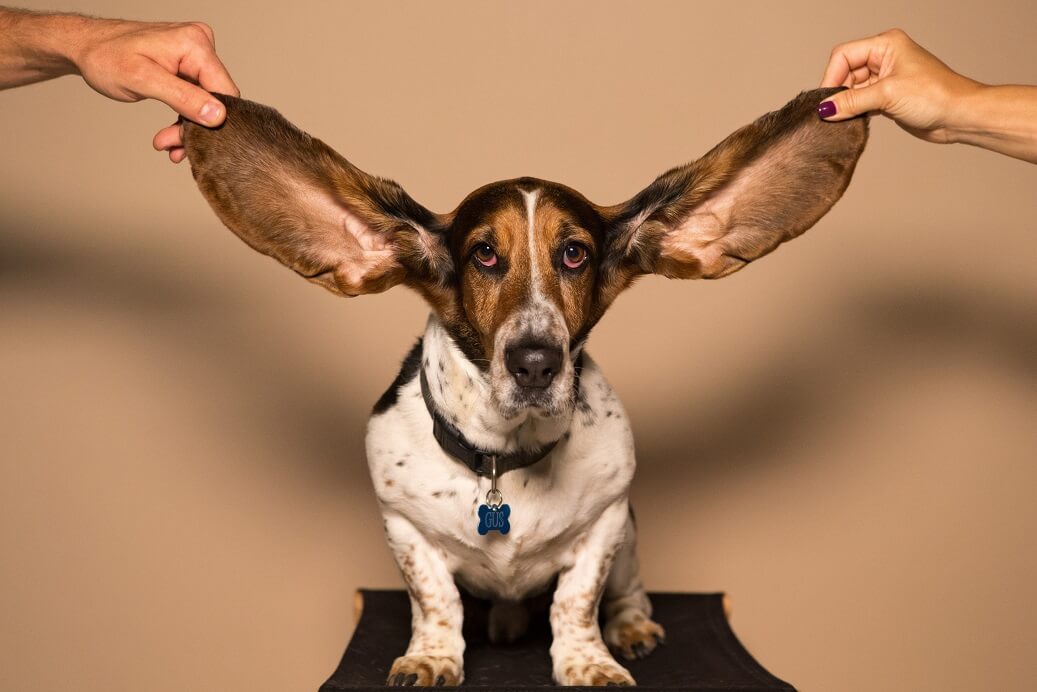When it comes to getting a good night's sleep, the choice between body pillows vs regular pillows can make a significant difference. The Debate Between Body Pillows and Regular Pillows has been ongoing, with proponents on both sides advocating for their preferred choice. While regular pillows offer versatility and convenience, body pillows provide added support and alignment for a more restful sleep. In this blog post, we will unravel the debate between body pillows and regular pillows to help you make an informed decision about which option truly qualifies as one of the best pillows for sleeping based on your individual comfort and support needs.

Understanding the Basic Differences
At the heart of the debate between body pillows and regular pillows lies a fundamental difference in design and intended use. But what is a body pillow? It’s an elongated pillow engineered to offer support to the entire body. Body pillows are uniquely designed to conform to the body’s contours, providing support where it's most needed to maintain spinal alignment and relieve pressure on joints. This allows them to be used in various ways to support different parts of the body during sleep. This feature is particularly advantageous for those dealing with physical discomfort or conditions that affect sleep quality.
In contrast, regular pillows are typically smaller and designed to primarily support the head and neck. Their compact size and shape enable them to be easily manipulated, offering a degree of adaptability in terms of loft and firmness that can be adjusted to suit individual preferences. This versatility extends to their utility, as they can be repositioned to accommodate different sleeping positions, or even used for support while sitting or lounging.
The distinction between the two types of pillows is not just about size or shape; it's also about their respective roles in promoting sleep health. Body pillows focus on providing targeted support to enhance spinal alignment and reduce strain on the body, which can be crucial for those with specific health issues or sleep disturbances. Regular pillows, with their flexibility and ease of use, cater to a broader range of general comfort and support needs, making them a staple in most households. Understanding these basic differences is key to determining which pillow type might best meet an individual's sleep requirements, taking into account both comfort and health considerations.
The Support Factor: Body Pillows for Alignment
A significant benefit of body pillows lies in their thoughtful design, which promotes optimal bodily alignment during sleep. For individuals looking to minimize discomfort and improve sleep quality, these pillows provide unparalleled structural support. For side sleepers with neck pain, a body pillow can be transformative, helping to maintain proper alignment of the hips, shoulders, and neck.
This alignment fosters a more natural sleeping posture, which is essential for alleviating neck pain and reducing strain on the spine. By preventing the awkward positions that often lead to morning aches and pains, body pillows offer a practical solution for side sleepers seeking a restful and pain-free night.
Moreover, body pillows offer a unique advantage in their ability to support multiple areas of the body simultaneously. Unlike regular pillows that are primarily used for head and neck support, body pillows can be positioned to extend the support to the legs and knees, promoting better circulation and reducing pressure on the lower back. This comprehensive support system is particularly beneficial for individuals with conditions such as sciatica or for pregnant women who require extra support to accommodate the changes in their body shape and weight distribution.
By creating a supportive environment that mirrors the natural curvature of the body, body pillows not only enhance comfort but also contribute to a deeper, more restorative sleep. This makes them an invaluable tool for anyone looking to improve their sleep quality and wake up feeling rejuvenated. Their consistent support throughout the night can significantly reduce the likelihood of sleep disturbances caused by discomfort, making them an essential consideration for those prioritizing alignment and support in their sleep setup.
Can you use a body pillow as a pillow?To use a body pillow, move onto your side and tuck the length of the pillow between your bent legs and arms. Depending on the shape, you may be able to use the upper portion of your body pillow as a head rest.
Versatility and Convenience of Regular Pillows
- The hallmark of regular pillows lies in their adaptability and ease of use, which caters to a wide range of sleeping preferences and positions. Unlike their elongated counterparts, these pillows can be easily manipulated to achieve the desired height and firmness, a feature particularly appealing to those who might shift positions throughout the night. Their compact size allows for effortless repositioning, whether the goal is to attain better neck support when lying on your back or to create a cozy nest for side sleeping.
- Additionally, the utility of regular pillows extends beyond just sleeping. They can serve multiple functions in your daily life, from providing lumbar support while seated at a desk, to offering a comfortable prop for reading in bed. This multifunctionality underscores their role as not just sleep aids but as essential components of everyday comfort and relaxation.
- Moreover, regular pillows are distinguished by their convenience. Their standard sizes make finding suitable pillowcases and protectors a breeze, ensuring they can be maintained and kept clean without hassle. This ease of care, combined with their versatility, makes regular pillows an indispensable choice for many households.
- For individuals who value the ability to customize their sleeping experience night after night or seek a simple yet effective solution for comfort, the regular pillow stands out as a practical and versatile option. Its ability to adapt to various needs without compromising on comfort or convenience positions it as a favorable choice for a broad spectrum of sleepers.

Evaluating the Impact on Sleep Quality
The influence of choosing between body pillows and regular pillows on one’s sleep cannot be overstated. For individuals facing nightly discomfort or specific physical ailments, the embrace of a body pillow might be the key to a serene and uninterrupted sleep. Understanding how body pillows improve sleep can make a big difference for those struggling with alignment issues, pressure points, or chronic pain. The structural support these pillows provide caters to those who experience frequent discomfort, ensuring a reduction in waking moments caused by pain and promoting better overall rest.
On the flip side, regular pillows, with their inherent adaptability, can cater to a wide spectrum of sleeping positions and needs, offering an uncomplicated solution to improving sleep quality. They allow sleepers to fine-tune their sleeping arrangements, thus accommodating an array of preferences that might change night to night. This adaptability is particularly beneficial for individuals whose discomfort is less about physical alignment and more about finding the perfect position for a restful night.
The impact on sleep quality extends beyond the physical to the psychological; knowing that one's sleep setup is tailored to their needs can ease the mind, further enhancing sleep quality. Both pillow types offer distinct advantages that can significantly influence the quality of rest one achieves. Deciding which pillow best meets an individual’s needs may require careful consideration of personal comfort, sleep habits, and long-term sleep health goals — especially when factoring in how body pillows improve sleep for those needing extra support and comfort.
Considerations for Special Needs and Conditions
When navigating the debate between body pillows and regular pillows, special considerations must be taken into account for those with unique needs or health conditions. For individuals experiencing chronic pain, such as back issues or fibromyalgia, the encompassing support offered by body pillows can make a significant difference in managing discomfort and facilitating uninterrupted sleep. Similarly, those recovering from surgeries or injuries might find that body pillows provide the necessary support to delicate areas, promoting healing and preventing further strain.
For expectant mothers, the ergonomic support of body pillows can help alleviate common pregnancy discomforts by supporting the abdomen and reducing stress on the back and hips. Meanwhile, regular pillows might be more suitable for individuals with respiratory issues or sleep apnea when used to elevate the upper body, facilitating easier breathing patterns and reducing obstruction during sleep.
Those suffering from acid reflux may also find relief with the strategic positioning of regular pillows, keeping the head and upper body elevated to prevent the backflow of acid. This positioning can be crucial in ensuring a restful night without the disruption of reflux symptoms.
In essence, considering your specific health condition and how it affects your sleep is vital in determining the most beneficial pillow type. Whether it's the targeted support of body pillows or the customizable elevation provided by regular pillows, acknowledging these special needs is a critical step toward achieving restorative sleep.
Is a body pillow good for your neck?
While we may associate body pillows with pregnancy, they can actually be a great sleep aid for anyone. They offer added support in areas you may need it, like the knees, hips, and even the neck, which all help to keep the spine aligned and stop aches and pains in the back and shoulders.
Making the Right Choice for You
Deciding on whether to integrate a body pillow or a regular pillow into your sleep regimen hinges on a clear understanding of your unique sleeping patterns, comfort preferences, and any specific health considerations. A body pillow might be the key to unlocking unparalleled support and alignment, particularly beneficial for those who grapple with sleep-disturbing discomforts or special conditions that a regular pillow might not adequately address. Conversely, if you find value in the ability to adjust your sleeping support on a nightly basis or require a multifunctional pillow for various activities, the regular pillow could be your ideal match. Experimentation can be a helpful approach; trying both pillow types could provide insight into which one contributes more significantly to your sleep quality and overall well-being. Reflect on your sleep experiences and prioritize what feels most conducive to restful nights and energized mornings. Your optimal sleep solution should cater to your comfort, offering a personalized pathway to better sleep health.
FAQ
Who should use a body pillow?
If you're a side-sleeper who's sick of waking up with aches and pains or someone who just wants to stop tossing and turning, a body pillow can help. But you might be especially interested in using one if: You're pregnant. You have sleep apnea or acid reflux.
Are body pillows good for stomach sleepers?
Since sleeping on your stomach forces your neck and upper body to curve unnaturally, most sleep experts will suggest that stomach sleepers prop their body up with a large body pillow in order to reduce excessive twisting
What is the best filling for a body pillow?
What is the best body pillow fill? Most of our topic picks are filled with memory foam, which offers a good balance of support and firmness.
What to read next?

Decoding Size: How Big Are Body Pillows Really?

Unveiling the Secrets: How Body Pillows Revolutionize Your Sleep Experience

Pillow Talk: How Should You Wash Body Pillows for Longevity?
What's available?

Memory Foam Orthopedic Neck Pillow for Cervical Health

U Design Body Pillow High-quality Maternity Sleeping Pregnancy Pillow

35/45/55cm Lovely Tortoise Plush Pillow






